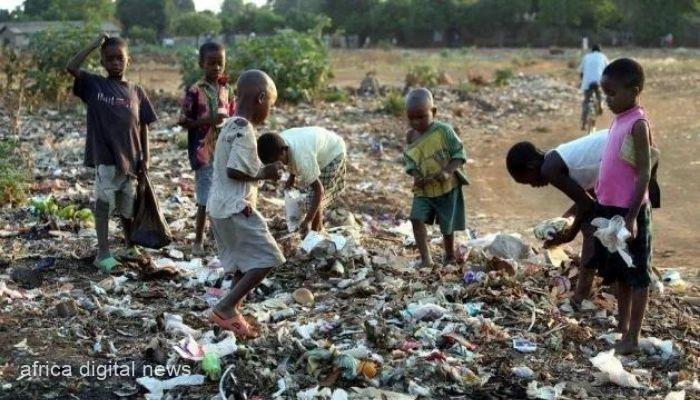Despite undeniably being a continent of immense potential and rich resources, Africa has struggled with the burden of poverty for far too long. As the cradle of civilisation, it is a paradox that this land, blessed with abundant human and natural wealth, continues to grapple with high levels of deprivation and economic inequality. The answer to this puzzle is not somewhere far. It is just somewhere around how Africa has been severely raped in search of resources.
One cannot truly understand the roots of Africa’s poverty, without first delving into the dark underbelly of overexploitation in Africa, which has shamefully taken place in the continent over the last few centuries. Quite a lot of intricate factors have teamed up to perpetuate this cycle of exploitation, which has expectedly kept Africa in the clutches of poverty.
The painful story of Africa’s exploitation is deeply intertwined with its colonial past. The era of colonisation was a period that saw European powers plundering the continent’s resources without remorse, leaving a trail of economic and social devastation in their wake. Precious minerals, such as diamonds, gold, and copper, were extracted with little regard for the long-term consequences on local communities. The exploitative systems put in place during this period laid the foundation for Africa’s ongoing struggle to harness its own resources for its people’s benefit.
Sadly, these imperial powers are still lurking around and using present-day African leaders as willing tools to continue this wicked practice of economic, social, and political exploitative practices.
While formal colonisation may have ended at least on paper and independence treaties, the specter of neo-colonialism continues to haunt Africa. African countries often find themselves ensnared in oppressive economic systems that perpetuate dependency and hinder self-sufficiency. The exploitation of Africa’s natural resources, such as crude oil, minerals, and timber, by multinational corporations from developed countries, has created a cycle of economic imbalance. These wickedly capitalist nations have continued to directly pass a message to Africans that all they need are the resources domiciled under her earth’s crust and nothing close to her overall development.
Read Also: Britain, And Her Joy In Profiting From Stolen Artifacts
Again, limited access to technology, capital, and markets are a few of the other factors that have further exacerbated the continent’s economic woes.
The reality is that Africa’s poverty is not merely a consequence of resource exploitation; it is also deeply intertwined with the loss of its skilled workforce. Year after year, African nations have continued to lose their best brains to the same nations that supervise the over-exploitation of their resources. Brain drain, which essentially means the emigration of highly educated professionals to wealthier nations, has drained Africa of her intellectual capital and impeded her development. As talented and intellectually endowed individuals seek opportunities abroad, they leave behind weakened institutions and a dearth of expertise, perpetuating the cycle of poverty and hindering local innovation and progress.
In Nigeria, the number of professionals in the country is dropping every week, and the situation has only continued to worsen.
According to recent research, at least $203bn leaves the African continent every year. Some of this is direct, such as $68bn in mainly dodged taxes. One of the biggest culprits are essentially multinational corporations who ‘steal’ much of this – legally – by pretending they are really generating their wealth in tax havens. These acts of stealing and corruption are convinently described as ‘illicit financial flows’ amount to around 6.1 percent of the entire gross domestic product (GDP) of Africa.
A look at European cities will show that most of them are presently awash with profits extracted from the land and labour of Africa. What then does Africa benefit from the resources under its earth’s crust?
Overexploitation of Africa’s natural resources has also taken a severe toll on its environment. Deforestation, unsustainable agricultural practices, and pollution have led to ecological degradation, threatening the continent’s biodiversity and exacerbating the effects of climate change. In turn, these environmental challenges disproportionately impact vulnerable communities, further entrenching poverty and hindering sustainable development efforts. These ugly realities cannot be encouraged to continue thriving.
Africans must now come to the painful realisation that to break free from the shackles of overexploitation, Africa must embark on a path of self-determination and sustainable development. Africa must stop lamenting and take their destinies into their own hands if they are to make any meaningful progress.
African governments must begin to prioritise policies that empower local communities to take control of their natural resources. This involves establishing transparent governance structures, strengthening legal frameworks, and ensuring fair revenue-sharing mechanisms.
Also, Africans must begin to make deliberate efforts to cooperate with each other, knowing how badly the odds are stacked against them. By fostering regional integration and cooperation, African nations can leverage their collective strength to negotiate better trade deals, pool resources together, and tackle common challenges. Unity is key to challenging the exploitative practices perpetuated by the West, which have clearly shown that they do not have any honour.
Furthermore, Africa cannot afford not to massively begin to invest in education and innovation. Africans must understand that prioritising education and investing in research and development will help them retain their intellectual capital and drive innovation. This, coupled with efforts to create an enabling business environment, will attract investment and nurture homegrown industries. This is truly the way to go if Africa is really serious about pulling itself out of the doldrums.
In conclusion, Africa today cannot continue to fuel the imperial core with mineral and natural resources at the cost of starvation, blood, brain drain, and immigrant bodies in the Mediterranean. More than ever, African solidarity is needed to strengthen the self-reliance, productive capacity, complementarity, and intraregional trade that should naturally exist in Africa. Africa has what it takes to turn around the tide and end the overexploitation, but it remains to be seen if genuine leaders in the continent will acquire the political will to do the right thing.










